Mapping the sustainability quotient: Are we doing enough?
Are packaging films eco-friendly? What are the manufacturers doing about the green process ? Rahul Kumar of WhatPackaging? talks to UFlex, Cosmo Films and Chiripal Poly Films.
A Special Sustainability Report
03 Mar 2022 | By Rahul Kumar
For UFlex, sustainability is an overarching theme that drives the company. For the company, sustainability includes elements such as recycling, biodegradation, source reduction and source substitution.
“In each of these domains, we carry out rigorous work to not just be perceived as a sustainable company but actually execute sustainably-led projects at ground level and create products that translate into minimum negative impact on our environment. We follow all certified processes under international standards,” says Jeevaraj Pillai, joint president, flexible packaging and new product development, UFlex.
The company has various certifications for different activities which fall under the umbrella of sustainability. For Example, the company develops PCR-grade film made from PET waste under the brand, Asclepius, which is FDA compliant. It also has Kingfisher certification from SCS Global Services that endorses that the company’s PCR-grade films contain minimum 100% post-consumer recycled PET content. This certification corroborates to its customers and to the flexible films’ market, the integrity of its supply chain and claims regarding PCR-based film technology.
The company recycles industrial as well as post-consumer MLP waste at its Noida plant and this process has attained CIPET certifications in compliance with IS14534:2016.
“Also, our enzyme-based biodegradable technology, Flexzyme, biologically degrades packaging waste into CO2, water, and biomass in a few months when exposed to natural soil conditions. This technology is compliant to ISO 17556,” Pillai adds.
Meanwhile, Chiripal Poly Films has product sustainability certificates for PCR-based BOPET film. For the system, the company has the environmental management system certification (ISO: 14001-2015) and it is going for energy management system certification (ISO:50001-2018) by February 2022 and for international sustainability and carbon certifications in July/August.
Pillai says these certifications endorse the company’s efforts to make its processes sustainable. “It also helps the brands we work with feel more confident about UFlex, as a partner, in their sustainability journey. However, they don’t provide any framework or pointers towards our sustainability approach. There is a charter we have arrived at based on the government policies, our own requirements and capacities, and we follow it to the tee,” he adds.
Bikash Debnath, senior general manager, QA & TS, NPD, Chiripal Poly Films, adds, “Our 14001-2015 compliance which covers GPCB guidelines. The further implementation of the two new systems of EnMS/ISCC will strengthen our commitment towards environment and sustainability.”
Staying informed
How do the companies stay informed about the government regulation and policies?
Pillai says, “In India, government policies that are relevant to plastic packaging companies are Plastic Waste Management (PWM) and Extended Producer Responsibility (EPR) guidelines, which are prescribed by the ministry based on India’s engagement in climate change pacts and further imposed by the state governments on manufacturing entities. We are notified by the government about these policies and rules that each plant/factory in that state has to comply mandatorily.”
UFlex also has a full-fledged sustainability department with required expertise to prepare actionable reports. The company has been drafting these reports every year. “Most of the global customers we work with need these reports, as per their country’s federal policy, to verify if their packaging partners are showing a declining carbon footprint trend and we do share it with them. To give you a quick reference of the UFlex carbon footprint study, in 2017 our average CO2 emission was 2.38 tonnes per tonne of laminate and in 2020, it came down to 1.99 tonnes,” Pillai says.
Debnath says Chiripal regularly liaisons with the MoEF, CPCB and other government departments and agencies for updates on government policies and programmes. “We are also members of various industry bodies and the Film Manufacturers Association through which we interact and voice our views to the policy-makers,” he said, adding, “I would also like to mention that we are working closely with government bodies to collect and recycle plastic wastage from the villages in Gujarat.”
Pankaj Poddar, Group CEO, Cosmo Films, adds, “Our legal department keeps a track on all the notifications which are released from the government bodies. Additionally, we take a step further and keep discussing new sustainability norms with our customers, suppliers and different industry associations.”
Pankaj Poddar of Cosmo Films
The sustainability journey
During an industry forum in 2016, Cosmo Films shared a paper on how sustainability will in due time become important, the myths around plastics and how it’s more sustainable than any of its counterparts. The paper was appreciated by the delegates.
Poddar says, “We believe sustainability as a concept should be calculated as a whole, not just by its visibility. Plastics have the least amount of carbon footprint during manufacturing and transportation when compared to its counterparts, such as glass and paper. If collected, segregated and recycled in an orderly fashion, it is truly a wonder material which has reduced all round food wastage due to its barrier properties.”
Chiripal’s journey into sustainability has various goals. According to Debnath, it includes minimal use of natural resources and more use of renewable energy, such as solar, wind, hydro; and zero discharges of water. It also includes using energy efficient motors wherever possible, reducing carbon footprint, following the 3R principle and spreading awareness about the sustainability journey within the company and outside.
For UFlex, as a growing flexible packaging company, when it set up its business, its chairman Ashok Chaturvedi had estimated a proportionate increase in plastic waste with the increase in urbanisation. With a vision to provide convenience of flexible packaging to brands and consumers, UFlex ascribed equal importance to tackle the problem of plastic waste way back in 1990s and developed a technology to recycle MLP mixed plastic waste generated from its production way ahead of other companies in developed economies. This even earned the company the ‘Best Paper Award’ from Davos Recycling Forum in 1995.
“However, we were practicing a linear economy then,” Pillai says, “Once we had the technology to recycle waste, including one that homogeneously recycles all layers of MLP without the challenge of separating them, our next step was to bring in the recycled product into usage to create a circular economy.”
The company achieved that by manufacturing injection moulding components with recycled granules as well as by upcycling recycled chips into its PCR PET and PCR PE range of films.
“Then came the next challenge of reducing plastic consumption at source and we established that via our packaging solutions like Kraftika and more such solutions that use less amount of virgin plastic. Once we were successfully able to carry out meaningful work in all these three areas — first recycle, then make use of recycled products and then reduce the use of plastic at source to achieve circularity — that really was a true point in UFlex’ sustainability journey,” he adds.
Jeevaraj Pillai of UFlex
Setting targets
Do the companies conduct wider footprint assessment to help identify parts of the supply chain that are responsible for a high amount of carbon?
Pillai says UFlex does it on a periodical basis. “With that, we have been able to transform all our packaging plants into zero emission plants. The by-products are recycled and reused. The water is recycled, treated and reused. We have maximised the use of clean energy. Also, most of our plants are built closer to the customer base thereby reducing CO2 generated from freight/shipment cost,” he said.
Debnath says Chiripal will start carbon footprint assessment during implementation of ISCC from April 2022 onwards.
Meanwhile, Cosmo Films has recently created an assessment, and identified 20 new projects. These are underway to improve the company sustainability standards. “We already have several sustainability practices in place, which are helping us to reduce our carbon footprint,” Poddar says.
These include optimising its truck load capacities to improve fuel efficiency and to reduce gas emissions. The company is also working towards rainwater harvesting, and reducing water consumption at the production level to become water positive.
It has also partially shifted to renewable power sources, such as wind and solar energy at all its plants, which has helped in reducing its production of carbon footprint by a large margin.
“We are constantly innovating to manufacture products which are mono material, are easily recyclable, and that the post-recyclate polymers garner better value in the system since they are close to virgin polymers,” Poddar explains.
Switching to green energy
Poddar says Cosmo Films is working on a hybrid energy model at its plants, where the company partially uses solar and wind energy to power its plants, along with some amount of coal-based energy. “We are making a Rs 100-crore investment to include several new practices and projects to improve our sustainability standards,” he adds.
Debnath says Chriripal has already established a 4MW solar plant and a 2MW wind energy plant on site. “We are also focusing on purchasing more renewable energy,” he says.
The company is also switching from conventional light to LED. It is also providing training to its employees on energy management.
UFlex has made 100% LED lighting across all its plants. All its energy production at plants is through clean gas like PNG. “Moreover, the energy usage in processes has been reduced by substituting it with efficient process aids like electron beam curing, LED curing, transitioning to water-based inks, etc,” Pillai says.

Bikash Debnath of Chiripal Poly Films
Sustainability champion
Pillai says UFlex has an active sustainability department that evaluates every project, every process, each initiative, and suggests actionable upgraded plans to achieve a greater sustainability footprint.
“We have a full-sized recycling plant in Noida that recycles close to 30,000 tonnes of plastic waste per year as part of our sustainability goals in India. Our target is to recycle 100,000 tonnes of plastic waste every year. This we will achieve as we commission our recycling projects in Mexico and Poland. We have committed an investment of over Euros 15-million in expanding the packaging infrastructure between 2021-23 with sustainability at the core,” he explains.
Poddar says the entire management team at Cosmo Films is responsible to identify and implement best practices, which are to be followed for an eco-friendly environment at its manufacturing facilities. “Having said that, we are in the process of appointing people who would dedicatedly work towards suggesting and implementing sustainability best practices,” he adds.
Procurement practises
Including environmental requirements in procurement practices is an easy way of driving the right behaviours internally. What are the steps these companies follow?
Poddar says, “During procurement, we have a thumb rule. The raw material we procure has to be energy-saving, one which uses less water during the production process. We are also wary of harmful chemicals which might affect the environment. In fact, in our subsidiary, Cosmo Speciality Chemicals, all the raw material we procure is eco-friendly, and all our products are either GOTS certified or in process of getting certified.”
Debnath says Chiripal considers the supplier registration and evaluation. It also communicates its OHS guidelines with its suppliers.
Meanwhile, Pillai adds, “We are quite conscious of the suppliers that we work with. Most of our supplies and material is procured from big MNCs like Exxon Mobil, Dow, etc, who have robust and comprehensive sustainability practices in place.”
A part of the company’s DNA
Pillai says sustainability is very much a part of the company’s DNA. “At UFlex, we have been worried about the planet and economy. We have had zero emission and zero waste discharge plants since 1995. In fact, all our factories are designed to be zero emission and zero discharge both in terms of waste by-product and effluents,” he says, adding, “Moreover, we have moved towards offering a product portfolio in every business that is largely backed by the double helix of best technology and sustainability.”
Debnath explains, “Conducting business in a sustainable manner is the responsibility of any organisation, and we are no different. We believe that sustainability is a business approach which creates long-term value for us, our stakeholders, including customers and most importantly, the society we live in. So, for us, sustainability and working towards a circular economy is a part of our DNA.”
Poddar concurs that it is an essential part of the company. He says the company has set goals for itself and are working towards achieving them year on year. “We have several sustainability practices already in place, and are working towards several more in the years to come. One major portion of our investment goes into sustainability,” he says.
Some of Cosmo Film’s sustainability efforts includes improving waste collection and re-granulation process to increase production of usable RPG; design products with better process ability and standard formulation; maximise the use of reprocessed granules to manufacture other alternate usage components; buying waste and converting them to usable RPG; reducing quality return from customers by 25% and minimising waste reduction in the process, among others.


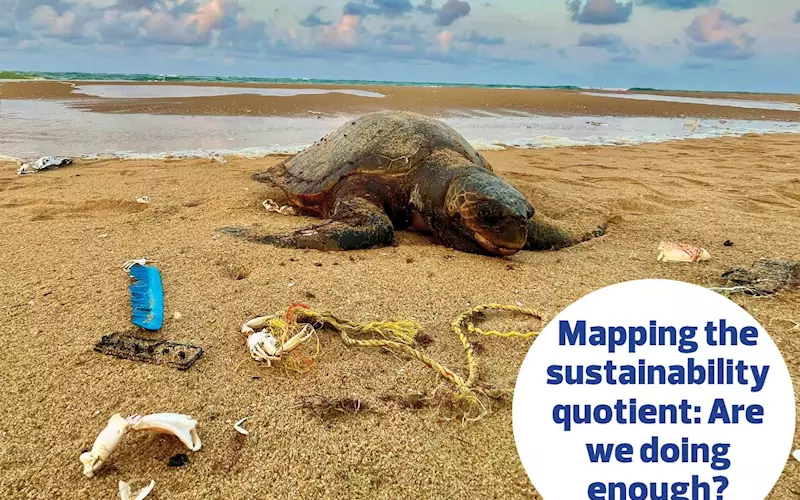

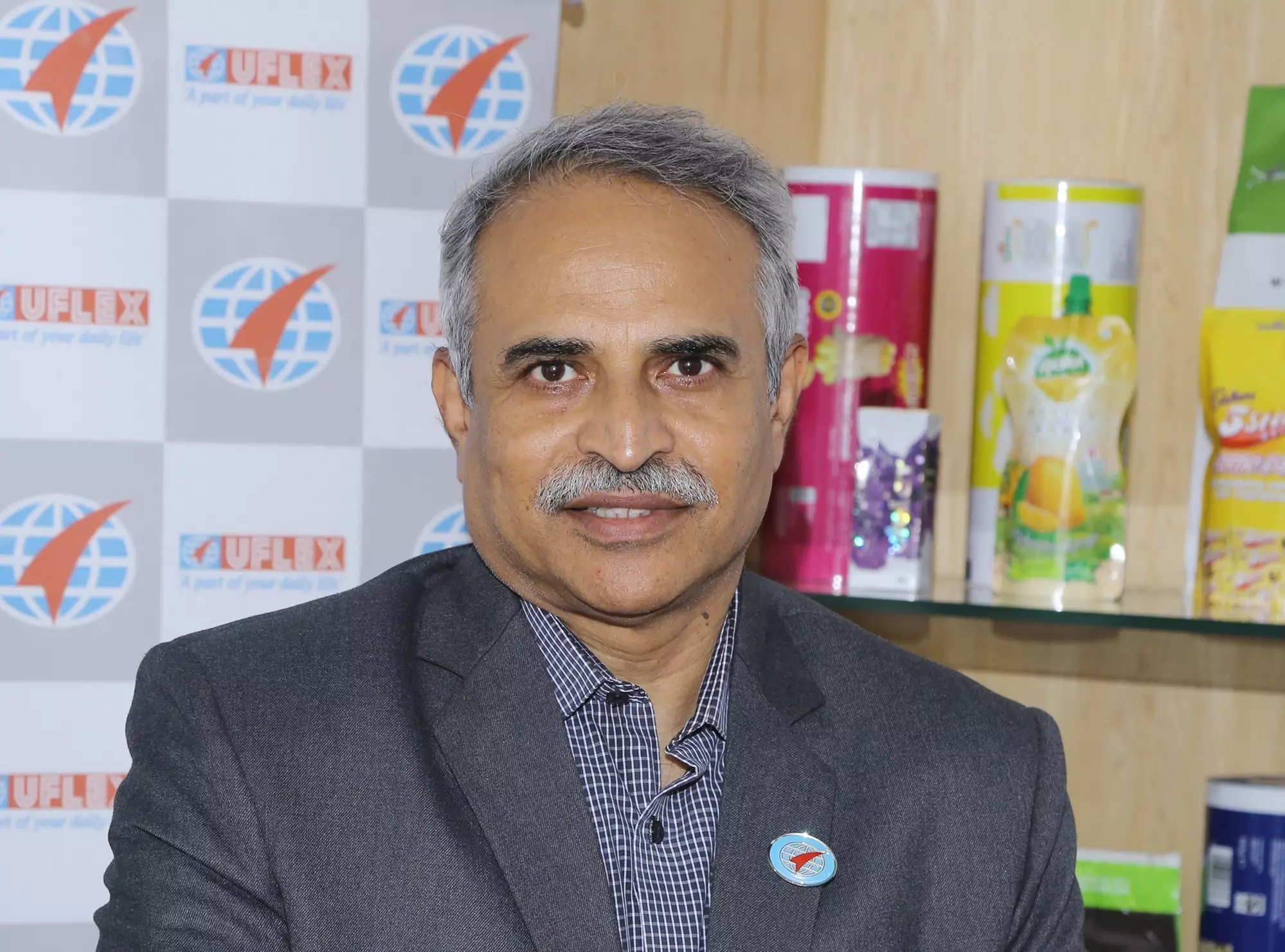
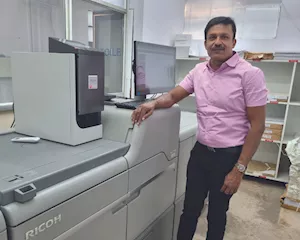
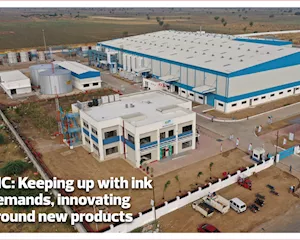
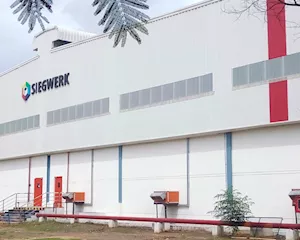
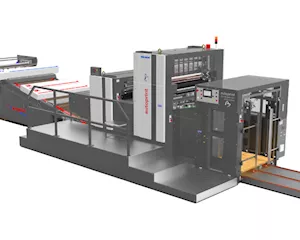







 See All
See All